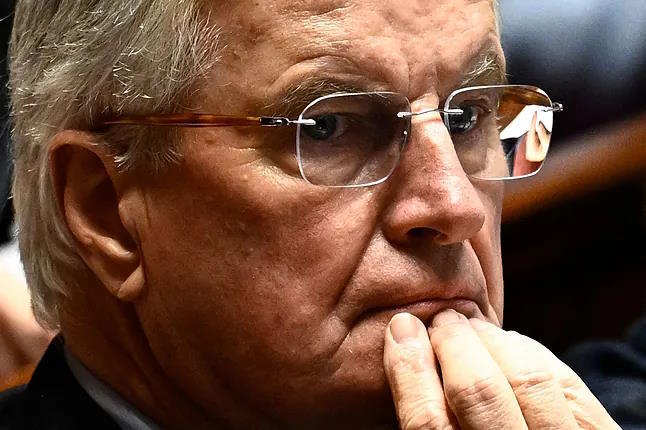He managed one of the most significant crises in Europe, the UK's exit from the EU. In September, when French President Emmanuel Macron offered him the position of Prime Minister, he knew the task would be difficult, but not that he would have almost no time to settle into the role. Unless a miracle happens, French Prime Minister Michel Barnier will become the shortest-serving since World War II on Wednesday.
Only three months in office, if the vote of no confidence presented by the left-wing bloc prospers, and it will be supported by the far-right of Marine Le Pen, Barnier and his team will have to resign. In his appointment, which was already a headache for Macron, a unique situation arose: he was elected with the support of Marine Le Pen, who then agreed not to censure him.
Now he falls precisely because Le Pen supports it. It is one of the paradoxes of the current political situation: with a Parliament without majorities and where every move depends on the leader of the far-right, despite all efforts to prevent her party, National Rally, from reaching the government.
In an interview on France 2, Barnier has maintained some hope tonight by stating that he still sees "the possibility of a reflection of responsibility" from the deputies to prevent the motions from succeeding. But he added: "I arrived knowing that I could be in the position for a short time and knew it was a fragile and fleeting situation."
When he took office, Barnier, a former European Commissioner and one of the most respected political figures in France, extended a hand "to all political forces," including the far-right, when he took office. At 73, he became the oldest Prime Minister in September. France had just had the youngest: Gabriel Attal, aged 35.
He also fell before completing a year in office. His predecessor, Elisabeth Borne, who did manage to complete 12 months, became the shortest-serving, but each replacement has shortened the term.
Barnier has extensive political experience: he has been a deputy, four times a minister, twice a European Commissioner, and was the EU's chief negotiator for Brexit. He ran for the presidency in the congress of The Republicans, the conservative party of the French right.
His experience has not been enough to deal with the political chaos in the country. According to the French press, Macron is already looking for a new replacement, although it is increasingly difficult to find a profile that will not be censured by the opposition. The French President was in Saudi Arabia when the votes of no confidence were presented. When the vote takes place in the Assembly, Macron will be returning to Paris.
Some names are being mentioned, but it remains to be seen if they will accept the position at this delicate moment, aware of how fleeting it is currently. One of the names being considered, according to the French press, is Sebastien Lecornu, the Defense Minister. He has a low-profile, which could avoid censures, but due to the geopolitical context, he has become one of the pillars of the Government.
The president of the centrist party Modem, François Bayrou, could also be in the running. He might have the blessing, or at least no censure for now, from Marine Le Pen. He criticized the sentence requested by the prosecution for her in the trial that judges her and her party for the case of parliamentary assistants, which could lead to her political disqualification.
